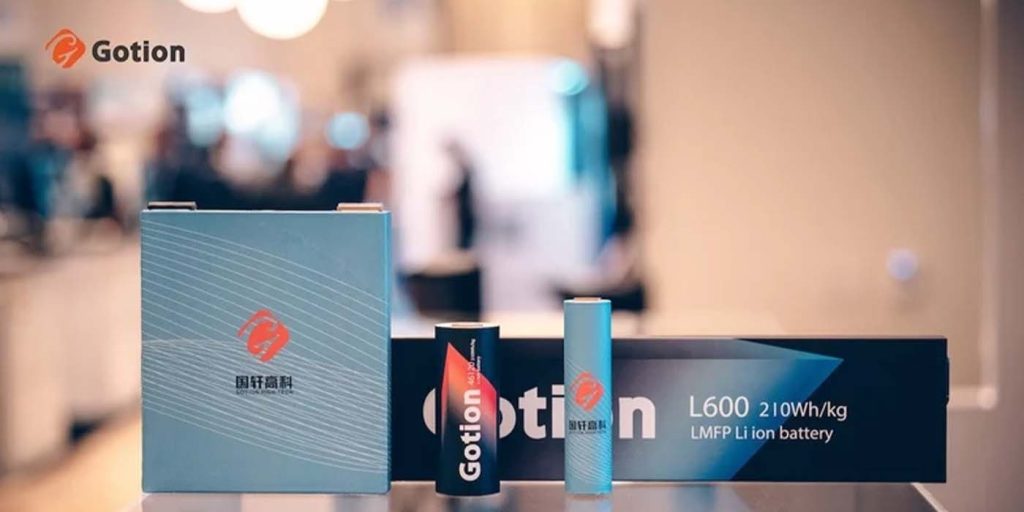
Tell us if you’ve heard this one before. A battery developer has unveiled a “breakthrough” in chemistry that will deliver some of the best range in the EV industry. Gotion High-Tech is the latest company to promise more range, but if its LMFP battery chemistry can reach production as planned, it could become a viable option to enable more affordable EVs.
Gotion High-Tech Co., Ltd. is a battery R&D and energy solutions provider that is headquartered in China but has footprints all over the world, including Silicon Valley. The company specializes in several different types of battery chemistries for a myriad of use cases inside and out of the automotive segment.
Gotion’s lithium-iron-phosphate (LFP) batteries have often been the subject of our coverage and Tesla was at one point rumored to be helping bring a factory to the US. Most recently, we learned Gotion will be expanding to Vietnam via a joint venture with VinES, the energy division of VinFast.
While it helps erect a 34.5 acre LFP battery factory with that automaker, Gotion is already looking ahead to next year, when it intends to begin production of a new lithium-iron-manganese-phosphate (LMFP) battery its promising can deliver 1,000 km (621 miles) of range on a single charge.

Gotion’s LMFP battery could deliver more affordable energy
Key word is could, but we’re rooting for Gotion. The battery developer recently unveiled its new LMFP battery chemistry, capable of achieving an energy density of 240 Wh/kg. For comparison, Gotion says the energy density of current LFP batteries tops out right around 190 Wh/kg.
By adding manganese to the cell’s chemistry, Gotion says it has been able to achieve higher energy density at a lower weight and pack size – a potentially huge win for EVs. Additionally, executive president of Gotion’s international business unit Cheng Qian says the company expects its new LMFP battery, being called “Astroinno,” to cost 5% less than a conventional LFP cell in terms of dollars per kWh.
That ratio also equates to LMFP batteries being approximately 20-25% less expensive than cells with nickel-manganese-cobalt (NMC) chemistry, which are the more typical batteries to provide such EV range these days. Cheng said the cells will enable competitive EV charge rates, too:
You can have a cup of coffee and rest at the charging station, and the battery will be charged from 10 percent to 80 percent within 18 minutes using the step charging.
LMFP batteries are not a new concept, but issues like low conductivity and energy density have held the technology back in the past, at least for EV applications. However, Gotion believes its new batteries have reached performance parity with NMC cells, but at a lower cost that is also safer.
Production is not very close, so we must keep our guard up (we’ve been hurt before), but Gotion has shared it expects the Astroinno LMFP to enter mass production as early at Q2 2024 at two of the company’s plans in the Anhui province of China. According to Cheng, they have already passed necessary safety tests.
Electrek’s Take
We must still cover this news because the prospect of it is exciting for EVs, but it feels like you can swap out the company name for any of Gotion’s competitors, and there’s likely a similar press release out there making similar performance claims – no matter the battery chemistry.
It’s truly tough to gauge range claims from battery companies when the cells haven’t been integrated into a vehicle yet. I’m sure a massive EV platform can go 621 miles if there are enough LMFP battery cells onboard – it all depends on the footprint.
Still the energy density sounds promising, especially if Gotion can in fact deliver performance parity with NMC cells at a lower cost. That will be the real deciding factor here, as OEMs aren’t likely to bite unless they’re getting better specs and safety at the same price as cells they’re currently buying, e.g. more range for their change (coined phrase).
Until Gotion’s LMFP batteries actually hit production, it’s tough to get excited about the cost benefits, because a lot can happen in the market and supply chain between now and Q2 of next year. We hope all of these “breakthroughs” come to fruition, but they realistically won’t. Rooting for Gotion nonetheless, as a win for them is a win for more affordable EVs.
Author: Scooter Doll
Source: Electrek




Top comment by Renaissance
Liked by 12 people
Err, I mean, any battery can deliver 1000km on a charge if you make it big enough… that’s a function of the pack size, surely?
View all comments